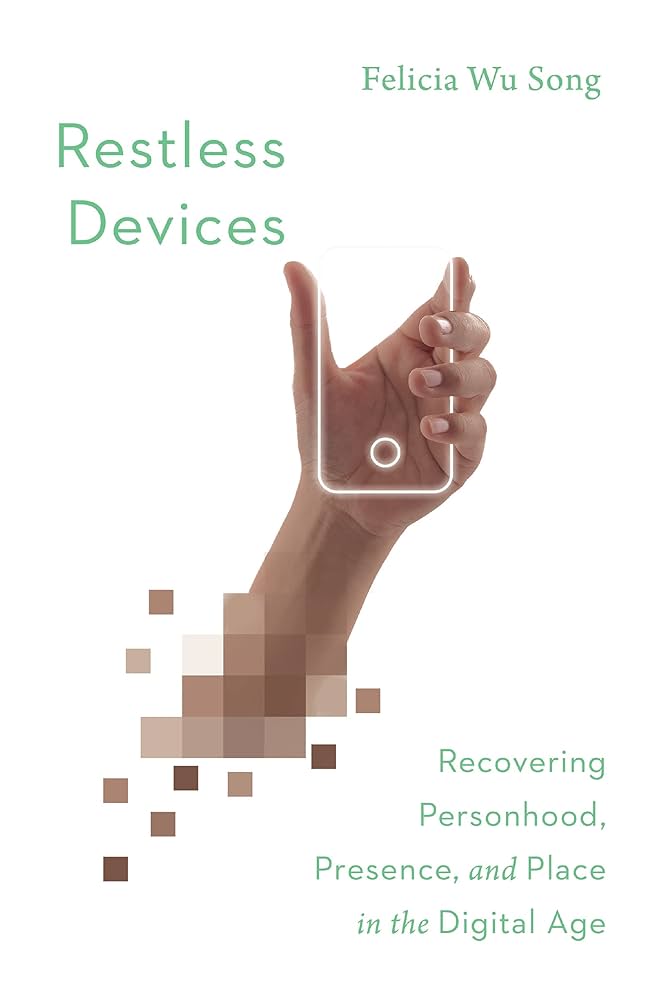Recovering Personhood, Presence, and Place in the Digital Age

“Our contemporary digital lives are fundamentally shaping our imaginations and appetites about what it means to be human.”
Despite good intentions to step away from our devices, we remain bound to the habits these digital chains have created. Similarly, as human connections lag in the presence of artificial media-measured by likes, followers, and visibility-our everyday relationships deteriorate. This is the digital crisis exposed by Felicia Wu Song in “Restless Devices,” a crisis that, once recognized, can be addressed through a reorientation grounded in Christian theology.
The restlessness and dissatisfaction we experience with digital media, Song argues, reflect a deeper longing for a more rooted and meaningful life. She connects this longing to the “restless heart” from St. Augustine’s Confessions: our endless scrolling and search for superficial affirmation is ultimately a yearning for a deeper communion. In response, Song offers The Freedom Project—a framework for spiritual reformation through small, intentional practices. Through theological habits such as prayer, communion, and mindfulness, she invites readers to realign their digital behaviors with rhythms of grace, attentiveness, and faith.
Overall, “Restless Devices” is a timely and theologically rich reflection on the unseen costs of digital life, offering both critique and hope. With wisdom and compassion, Song calls us not just to unplug, but to realign according to a Christian vision-one of faith, grace, and ultimately greater fulfillment.
Reviews and endorsements of the publication include:
“Digital media has shaped our spiritual lives and churches in profound ways, yet we have few guides to navigate this new terrain. I have longed for a book like Restless Devices to be written. Felicia Wu Song compellingly examines the addictive qualities of digital media—its ubiquity and totalizing power. But her depth of expertise and profound Christian imagination allow her to go further than mere critique. She offers us practical hope in the ‘counterliturgies’ of the Christian faith. I highly recommend this powerful work of spiritual formation to all who seek to live humanely and faithfully in our digital age.” — Tish Harrison Warren, Anglican priest and author of Liturgy of the Ordinary and Prayer in the Night
“I have been looking for this book for years. Dr. Song brings the top scholarship and the deepest Christian reflection to bear on the important spiritual topic of how we faithfully engage our devices. In this digital age, which requires new forms of moral and spiritual reflection, there are few topics that could be more relevant or more needed. This is a book I will read again and again.” — Elaine Howard Ecklund, professor of sociology at Rice University and author of Why Science and Faith Need Each Other: Eight Shared Values That Move Us Beyond Fear
For more information on the publication, click here.
